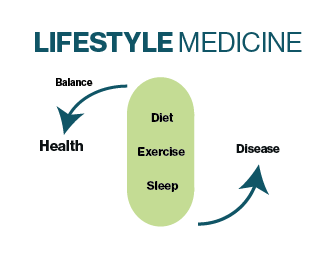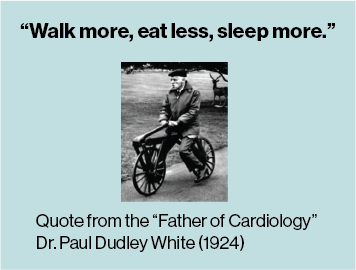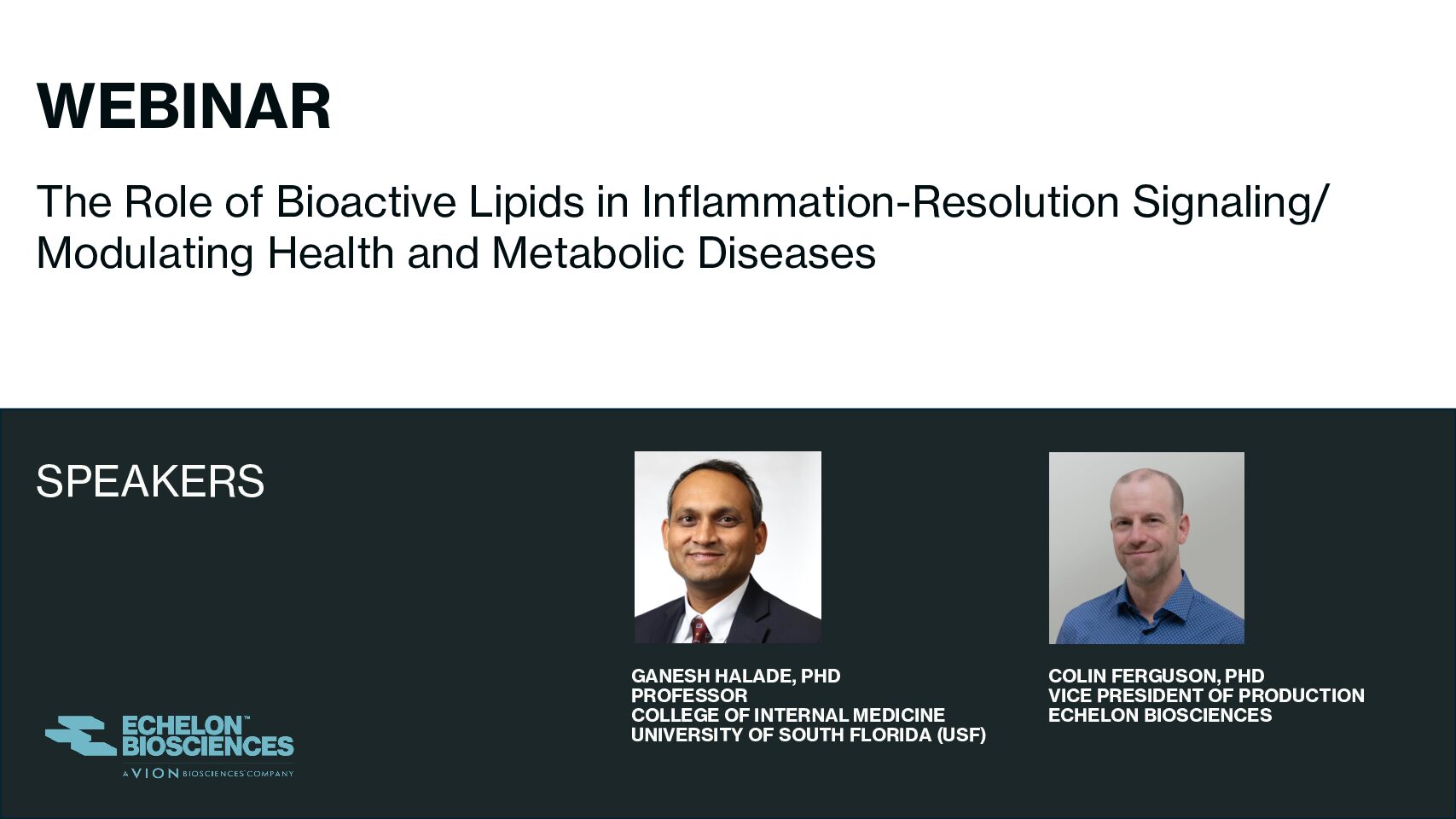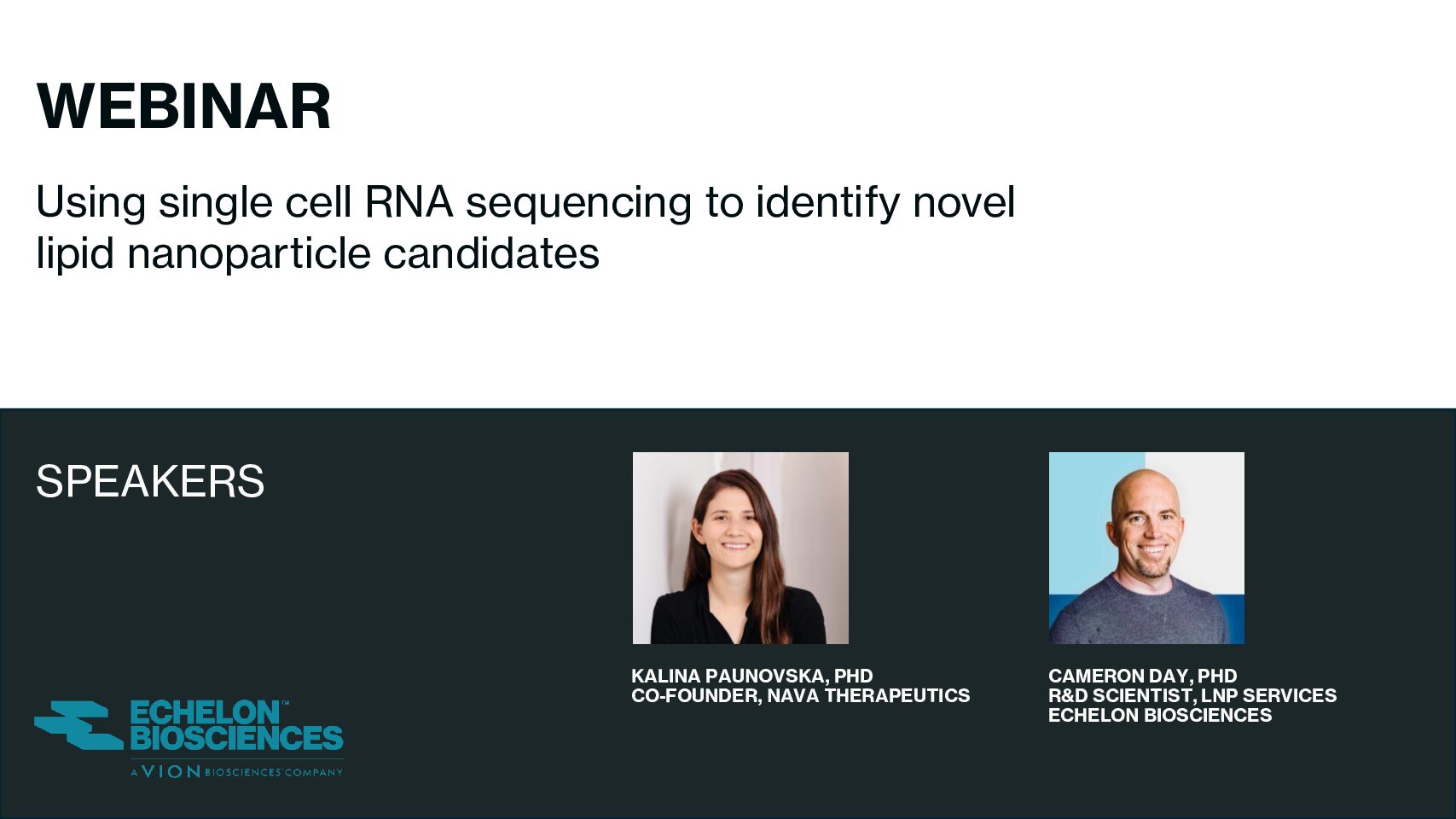Recently, Echelon Biosciences hosted a compelling webinar “The Role of Bioactive Lipids in Inflammation-Resolution Signaling – Modulating Health and Metabolic Diseases” featuring Dr. Ganesh Halade, a renowned expert in cardiovascular immunology at the University of Southern Florida (USF). The session explored the intricate relationships between bioactive lipids, immune responses, and environmental factors, shedding light on their collective impact on cardiovascular health.
Key Insights from Dr. Halade’s Presentation
1. Intrinsic Regulation of Resolution Mediators Requires Coordinated Biological Systems
Dr. Halade emphasized that the production and regulation of resolution mediators—lipid-derived molecules that resolve inflammation—depend on the coordination of four intrinsic factors. These include key metabolic and signaling pathways essential for maintaining immune balance and promoting tissue homeostasis following cardiovascular injury. Disruption in this coordination can impair the resolution phase of inflammation, contributing to chronic disease.
Enzymatic Machinery for Lipid Mediator Biosynthesis
Enzymes such as ALOX5 (5-lipoxygenase), ALOX15, COX-2, and epoxide hydrolases are essential for converting polyunsaturated fatty acids (like omega-3s) into specialized pro-resolving mediators (SPMs) such as resolvins, lipoxins, and protectins.
Fatty Acid Substrate Availability
A sufficient pool of omega-3 fatty acids (e.g., DHA and EPA) is required for SPM biosynthesis. The balance of dietary lipids influences the types and amounts of lipid mediators that can be produced.
Immune Cell Responsiveness
Cells like macrophages, neutrophils, and splenic leukocytes must be able to respond to lipid signals. Their ability to transition from a pro-inflammatory to a pro-resolving phenotype is essential for tissue healing and inflammation resolution.
Receptor Expression and Sensitivity
Resolution mediators act through receptors such as ALX/FPR2, GPR32, and DRV1 (RvD1 receptor). These receptors must be adequately expressed and functional to transmit the anti-inflammatory and pro-resolving signals of lipid mediators.
2. ALOX5 and Omega-3 Fatty Acids Are Central to Cardiac Repair
The enzyme ALOX5 (5-lipoxygenase) plays a critical role in the biosynthesis of specialized pro-resolving mediators (SPMs) such as resolvins and lipoxins. Dr. Halade highlighted that sufficient levels of omega-3 fatty acids are vital substrates for ALOX5 to drive this biosynthetic process. Without this axis functioning properly, cardiac repair mechanisms—especially following ischemic injury—are significantly compromised.

3. Environmental Stressors Impair Resolution Pathways
An imbalance of three extrinsic factors—diet, sleep, and exercise— was identified as a major disruptor of resolution mediator biosynthesis. These lifestyle components act as environmental regulators of immune and metabolic health. Poor diet, insufficient sleep, or sedentary behavior can alter lipid mediator profiles and immune cell function, contributing to sustained inflammation and delayed cardiac recovery.
4. RvD1 Receptor Dysfunction Links to Multi-Organ Inflammation and HFpEF
Dr. Halade also presented evidence that dysfunction in the receptor for Resolvin D1 (RvD1) can lead to multi-organ chronic inflammation and is associated with the development of heart failure with preserved ejection fraction (HFpEF). This reinforces the therapeutic potential of targeting resolution pathways, not just to treat cardiovascular disease but to mitigate systemic inflammatory conditions.
Understanding the interplay between bioactive lipids, immune responses, and environmental factors opens avenues for precision medicine approaches. Targeting specific lipid mediator pathways, in conjunction with lifestyle modifications, holds promise for mitigating chronic inflammation and preventing cardiovascular diseases.
Echelon Biosciences: Supporting Lipid Research
Echelon Biosciences offers a comprehensive suite of products to facilitate research in lipid biology and immunology:
- Lipid Mediators & Derivatives: A wide selection of resolvins, leukotrienes, prostaglandins, and synthetic analogs to help dissect lipid signaling pathways in immune and cardiovascular systems.
- Assay Kits: Validated kits for quantifying lipid metabolites and assessing pathway activity in cellular and tissue samples.
- Custom Synthesis Services: Need a non-commercial lipid or labeled compound? Our chemists can provide tailored solutions for your unique research needs.
Explore our catalog at www.echelon-inc.com or reach out for technical guidance on selecting the right tools for your research.

Conclusion: Lipids as Gatekeepers of Inflammation and Health
Dr. Halade’s webinar delivered a compelling message: lipids are not just energy stores or membrane components—they are active molecular signals with the power to shape immune outcomes, tissue repair, and disease trajectories. His work illustrates the need for an integrated view of immunology, metabolism, and lifestyle, especially in the context of heart disease and chronic inflammation.
As the scientific community pushes forward in decoding the lipid-immune interface, with over 27 years’ experience working with lipids, Echelon Biosciences remains a dedicated partner—providing the tools and expertise researchers need to explore these complex systems.
Or Check here for future events!
0.2
/ 0.3
Related Articles
Stay informed with our informative blog posts.
0.3
/ 0.3
Get in Touch
If you have any questions or would like to learn more about our services, feel free to reach out to us. We’re here to help!
Biosciences


